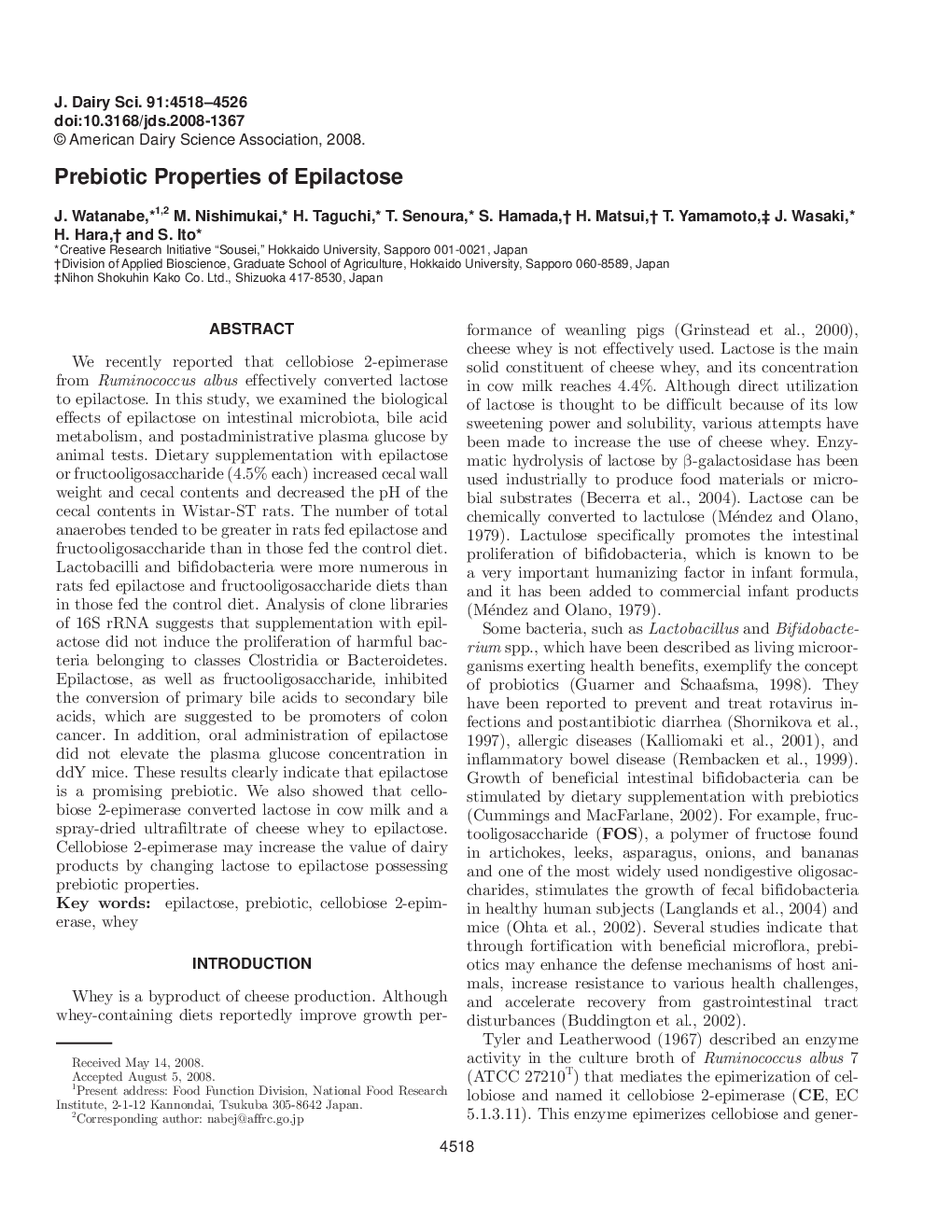| Article ID | Journal | Published Year | Pages | File Type |
|---|---|---|---|---|
| 2439787 | Journal of Dairy Science | 2008 | 9 Pages |
Abstract
We recently reported that cellobiose 2-epimerase from Ruminococcus albus effectively converted lactose to epilactose. In this study, we examined the biological effects of epilactose on intestinal microbiota, bile acid metabolism, and postadministrative plasma glucose by animal tests. Dietary supplementation with epilactose or fructooligosaccharide (4.5% each) increased cecal wall weight and cecal contents and decreased the pH of the cecal contents in Wistar-ST rats. The number of total anaerobes tended to be greater in rats fed epilactose and fructooligosaccharide than in those fed the control diet. Lactobacilli and bifidobacteria were more numerous in rats fed epilactose and fructooligosaccharide diets than in those fed the control diet. Analysis of clone libraries of 16S rRNA suggests that supplementation with epilactose did not induce the proliferation of harmful bacteria belonging to classes Clostridia or Bacteroidetes. Epilactose, as well as fructooligosaccharide, inhibited the conversion of primary bile acids to secondary bile acids, which are suggested to be promoters of colon cancer. In addition, oral administration of epilactose did not elevate the plasma glucose concentration in ddY mice. These results clearly indicate that epilactose is a promising prebiotic. We also showed that cellobiose 2-epimerase converted lactose in cow milk and a spray-dried ultrafiltrate of cheese whey to epilactose. Cellobiose 2-epimerase may increase the value of dairy products by changing lactose to epilactose possessing prebiotic properties.
Related Topics
Life Sciences
Agricultural and Biological Sciences
Animal Science and Zoology
Authors
J. Watanabe, M. Nishimukai, H. Taguchi, T. Senoura, S. Hamada, H. Matsui, T. Yamamoto, J. Wasaki, H. Hara, S. Ito,
